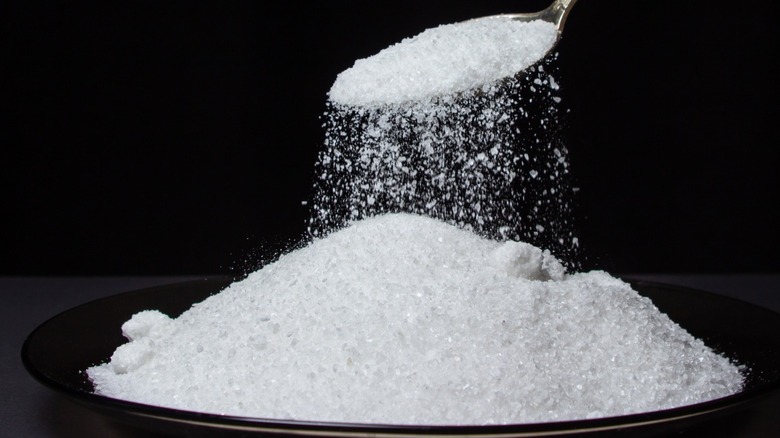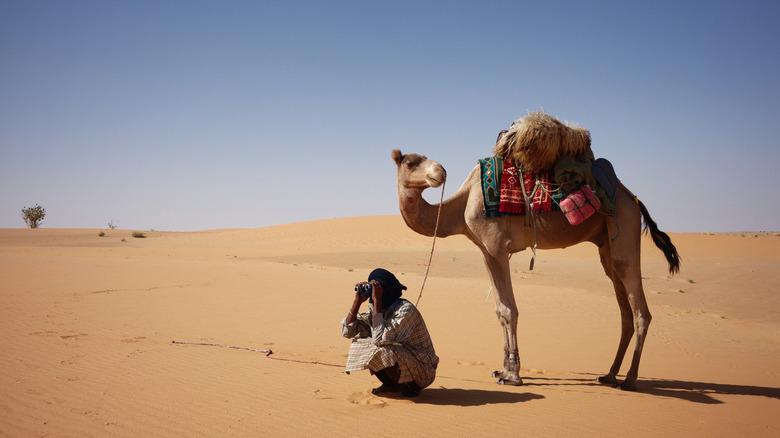The Place Where Salt Was 'Worth Its Weight In Gold'
We take salt for granted these days. Modern transportation methods bring us food from all over the globe, far from where it originated. Since salt is common enough, it's not very expensive, either. These days, our problem is that we eat too much salt, not that we don't get enough. But for ancient civilizations, salt was a little harder to come by. In prehistoric times, most humans had gotten an adequate supply of sodium through their consumption of hunted game, but as civilizations developed and farming became the norm, people needed ways of adding salt to their diets, according to Smithsonian Education.
Most parts of the world had a clear way to do that. Salt could be obtained in a couple of different ways: usually either by evaporating sea water or by mining, much like any stone. Most of the world had a way to source salt locally.
But in one unusual corner of Africa, getting enough salt was an issue. Salt was scarce south of the Sahara, particularly in the Western part of Africa. But that very same region just so happened to be very rich in something internationally desirable: gold, per The Smithsonian Institute. Gold was so ubiquitous in parts of West Africa that some even referred to the region as the "Land of Gold," as explained by the Metropolitan Museum.
Salt: the spice of life
Western Africa's abundance of gold, coupled with the local need for salt, was the foundation of some of the most important and historic trade routes in the world (per World History). West Africans needed salt to live, of course, but they also wanted it, both for taste and for food preservation purposes, much as Western Europeans longed for spices. The Sahara Desert wasn't good for growing crops, but it could supply rock salt, and caravans passing from North to South brought salt with them. Gold was still generally more valuable than salt, even in gold-rich lands like the Kingdoms of Ghana and Mali (via Sacred Valley Salt) where salt could be exchanged for gold dust. While valuing salt as highly as gold would have been exception rather than the rule, since the salt was in high demand (and transporting it over long distances provided some challenges) in especially remote areas, it was sometimes truly "worth its weight in gold," according to Common Lit.
Much like the Spice Trade that brought Europe in contact with the Far East, the Gold-Salt trade was the source of an intercultural exchange between the North of Africa and the Subsaharan parts of the continent. That trade brought Islam to Sub-Saharan Africa and a host of commodities back and forth across the continent, forging and maintaining relationships and providing the basis for cultural dialogue and even domination. The rest is history.

